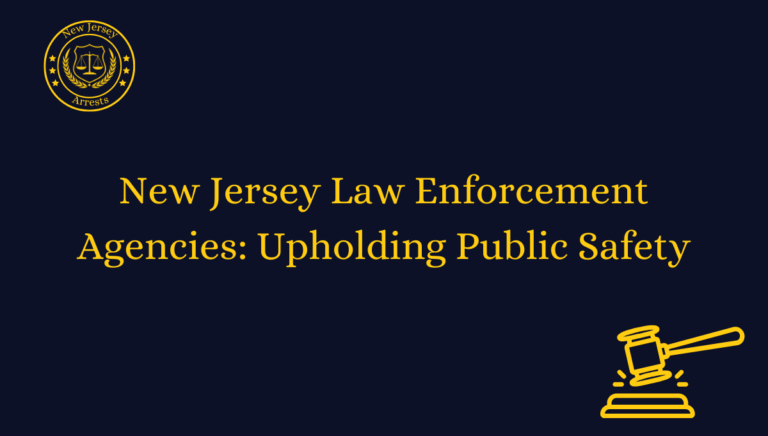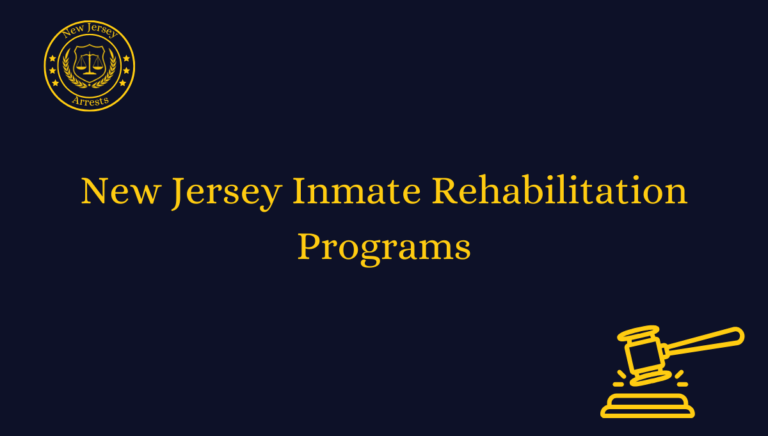New Jersey Court System and Legal Process
Welcome to the informative guide on the New Jersey Court System and Legal Process. Whether you are a legal professional, a law student, or simply someone with a curious mind, this comprehensive overview will provide you with a deeper understanding of the intricate workings of the New Jersey judicial system.
From the smallest municipal court to the esteemed Supreme Court, New Jersey’s legal framework is a well-organized and efficient system dedicated to upholding justice. With a rich history dating back to the colonial era, the state’s courts have evolved to meet the ever-changing needs of its diverse population. Understanding the legal process is essential for anyone involved in or affected by the legal system, and this guide aims to equip you with the knowledge you need to navigate through it with confidence.
Understanding the Structure of New Jersey Courts
When it comes to comprehending the inner workings of the New Jersey court system, it is crucial to understand the hierarchical structure of its courts. With a clear understanding of the different levels and their functions, you can navigate the legal process with confidence.
Municipal Courts: The First Step in the Legal Journey
At the base of the New Jersey court system are the municipal courts. These courts handle a wide range of cases, including traffic violations, disorderly conduct, and small claims. Each municipality in the state has its own municipal court, making it easily accessible for residents.
Superior Courts: The Backbone of the Judiciary
A step above the municipal courts, the Superior Courts play a crucial role in the New Jersey legal system. These courts have general jurisdiction and handle a wide range of cases, including criminal, civil, family, and probate matters. With 21 counties in New Jersey, there are 21 Superior Court districts, ensuring accessible justice for all.
Appellate Division: Seeking Justice Through Appeals
When a party is dissatisfied with a decision made by a Superior Court, they have the right to appeal to the Appellate Division. This intermediate appellate court reviews the decisions made by lower courts, ensuring that the law has been correctly applied and justice has been served.
New Jersey Supreme Court: The Final Arbiter of Justice
At the pinnacle of the New Jersey court system stands the Supreme Court. As the highest appellate court in the state, it has the final say on matters of law and constitutional interpretation. The Supreme Court consists of a Chief Justice and six Associate Justices, collectively responsible for maintaining the integrity of the legal process.
The Legal Process: From Filing to Resolution
Now that you have a grasp of the court structure, let’s dive into the legal process itself. Understanding the sequential steps from filing a case to its resolution is essential for anyone involved in the New Jersey court system.
FAQs
What is the New Jersey Court System?
The New Jersey Court System is the judicial branch of the state government responsible for interpreting and applying the laws in the state of New Jersey. It consists of various courts that handle different types of cases, including civil, criminal, family, and probate matters.
How can I file a lawsuit in New Jersey?
To file a lawsuit in New Jersey, you will need to follow a specific procedure. First, you must determine the appropriate court for your case based on the nature and value of the dispute. Then, you need to prepare the necessary legal documents, such as a complaint, and file them with the court. It is advisable to consult with an attorney to ensure that you comply with all the requirements and deadlines.
What is the difference between the New Jersey Superior Court and the Municipal Court?
The New Jersey Superior Court is the highest trial court in the state and has general jurisdiction over all types of cases. It is divided into several divisions, such as the Civil Division, Criminal Division, and Family Division, which handle specific types of cases. On the other hand, the Municipal Court is a local court that handles minor criminal offenses, traffic violations, and municipal ordinance violations.
How long does it take to resolve a case in the New Jersey Court System?
The time it takes to resolve a case in the New Jersey Court System varies depending on various factors, such as the complexity of the case, the number of parties involved, and the court’s caseload. Simple cases may be resolved within a few months, while more complex cases can take several years. It is important to note that each case is unique, and the timeline can be influenced by many factors.
Can I represent myself in court without an attorney?
Yes, you have the right to represent yourself in court without an attorney. It is called representing yourself “pro se.” However, it is generally recommended to seek legal representation, especially for complex or high-stakes cases. Lawyers have the knowledge and experience to navigate the legal system effectively and protect your rights. If you choose to represent yourself, you will be responsible for understanding and following all the applicable laws and court procedures.
What is the process for appealing a decision in the New Jersey Court System?
If you disagree with a decision made by a New Jersey court, you may have the right to appeal the decision to a higher court. The appeal process involves filing a notice of appeal within a specific timeframe and presenting arguments to the appellate court explaining why you believe the lower court’s decision was incorrect. The appellate court will review the record of the case and consider the arguments presented by both parties before making a decision.







